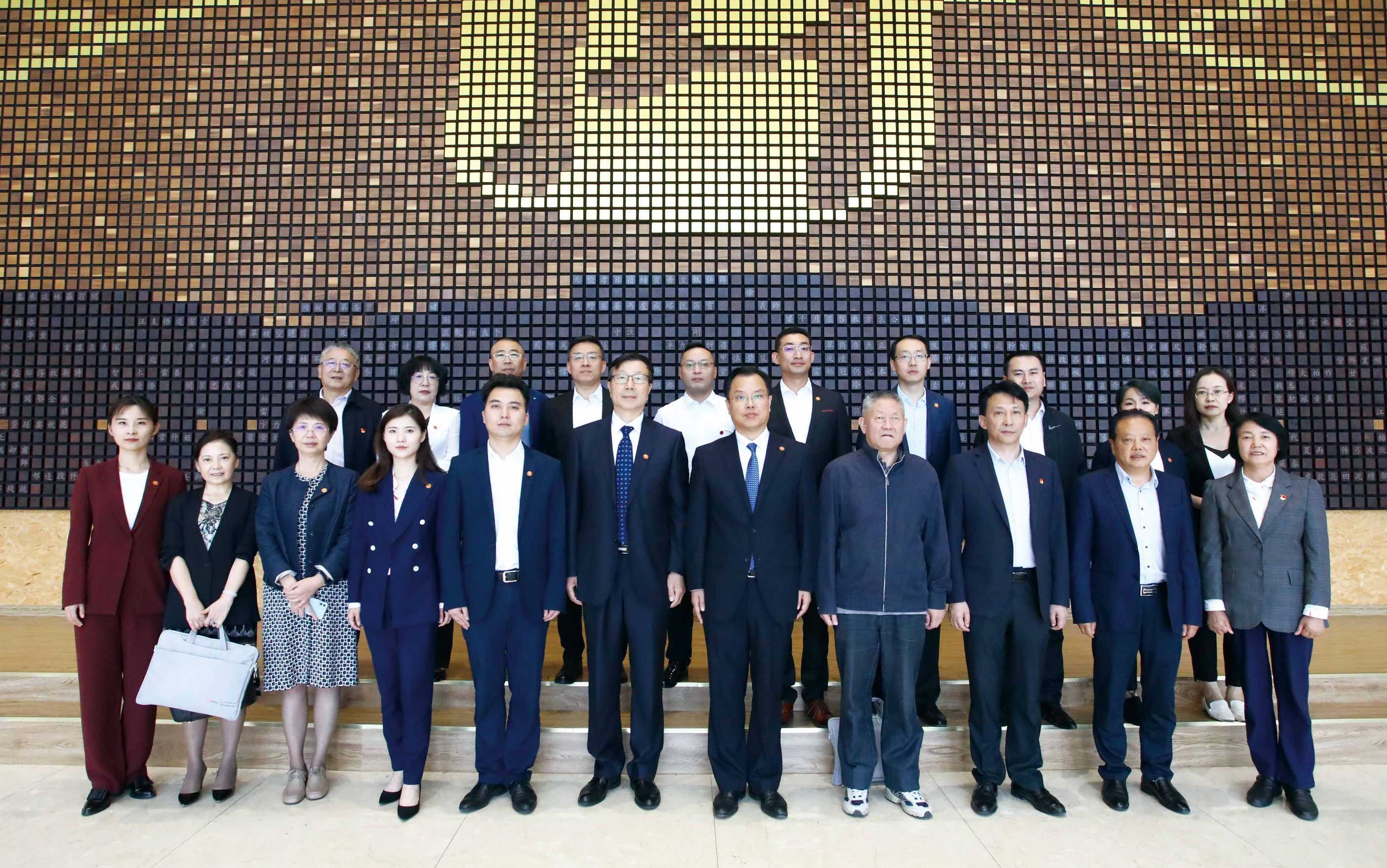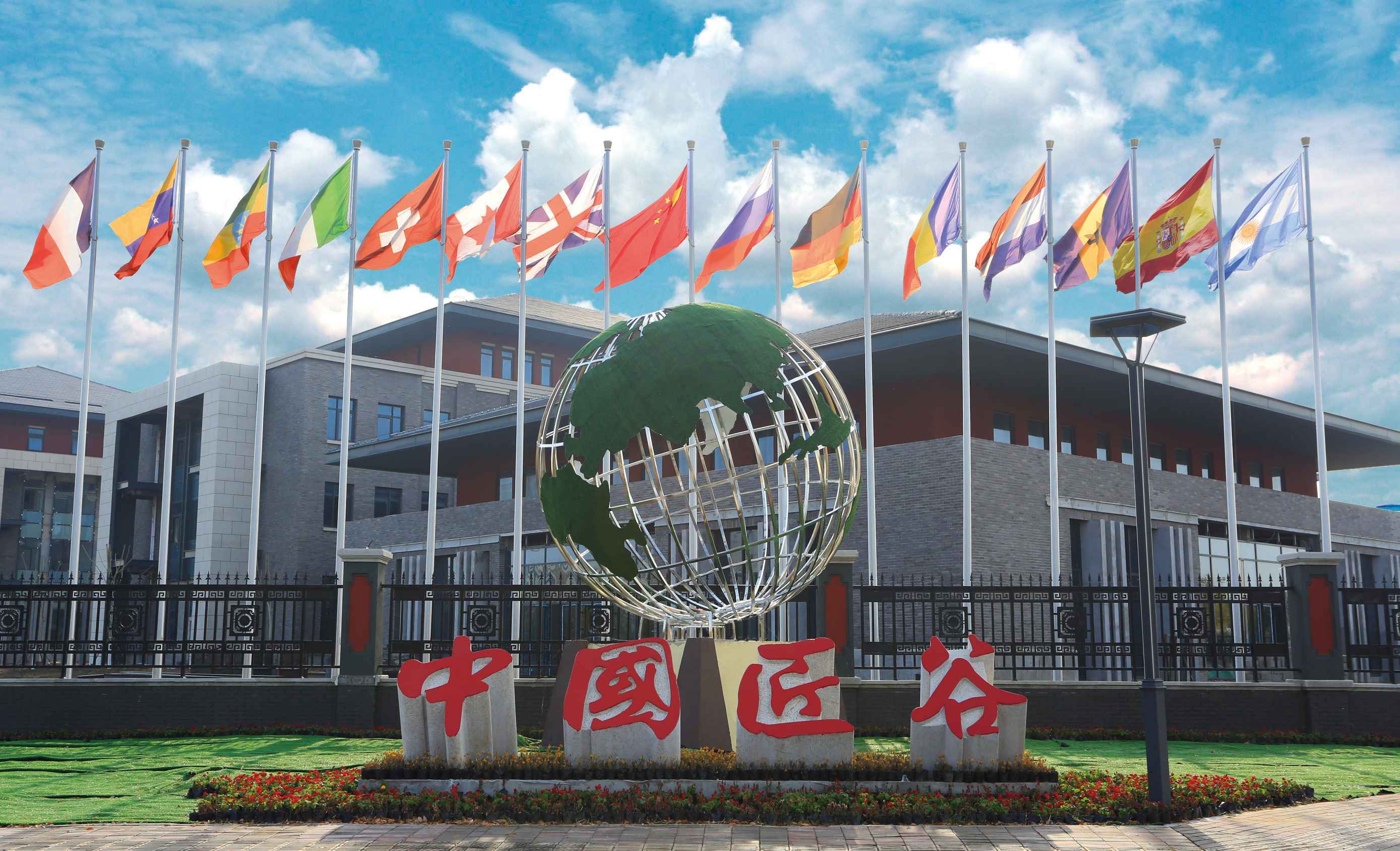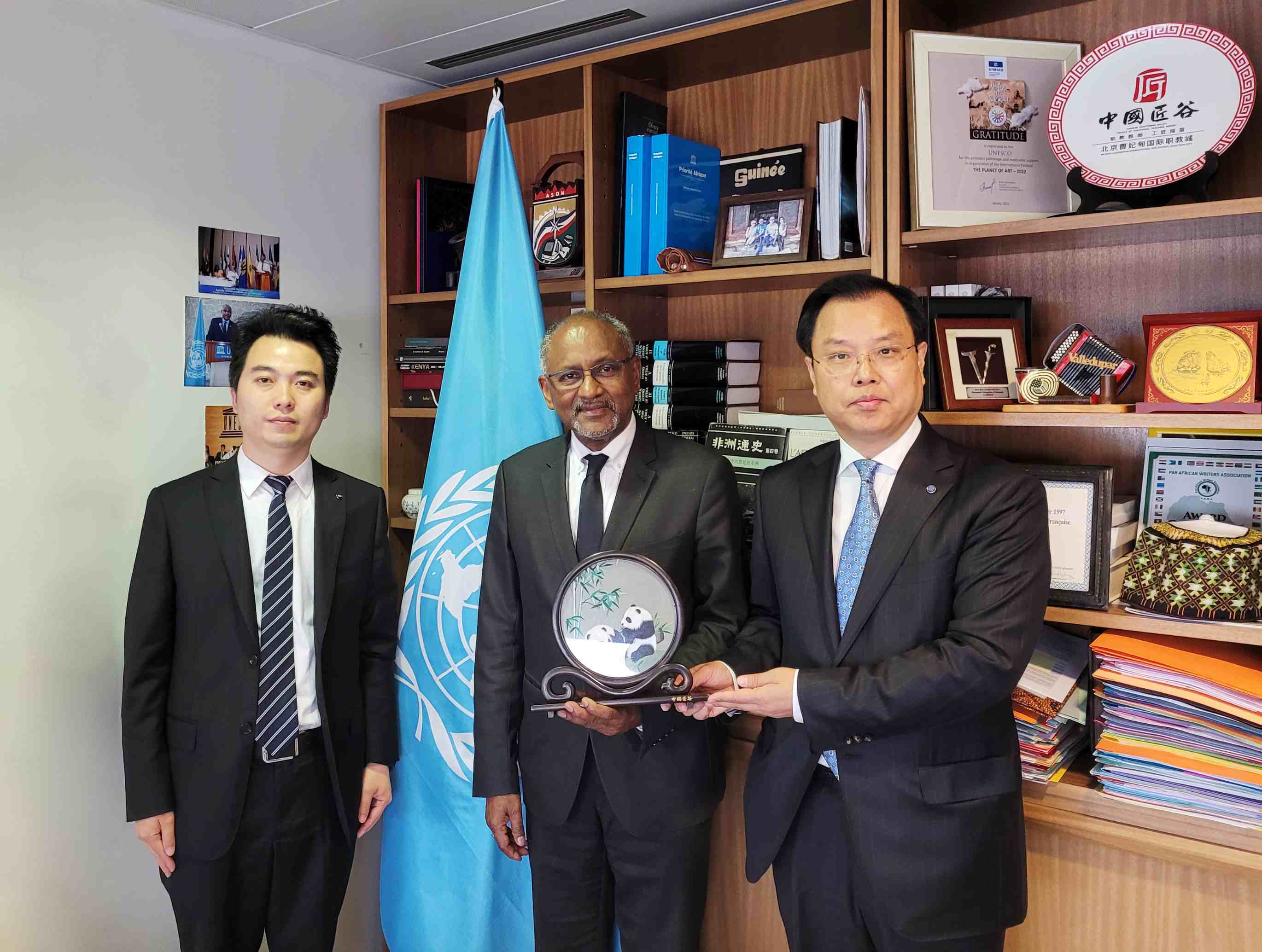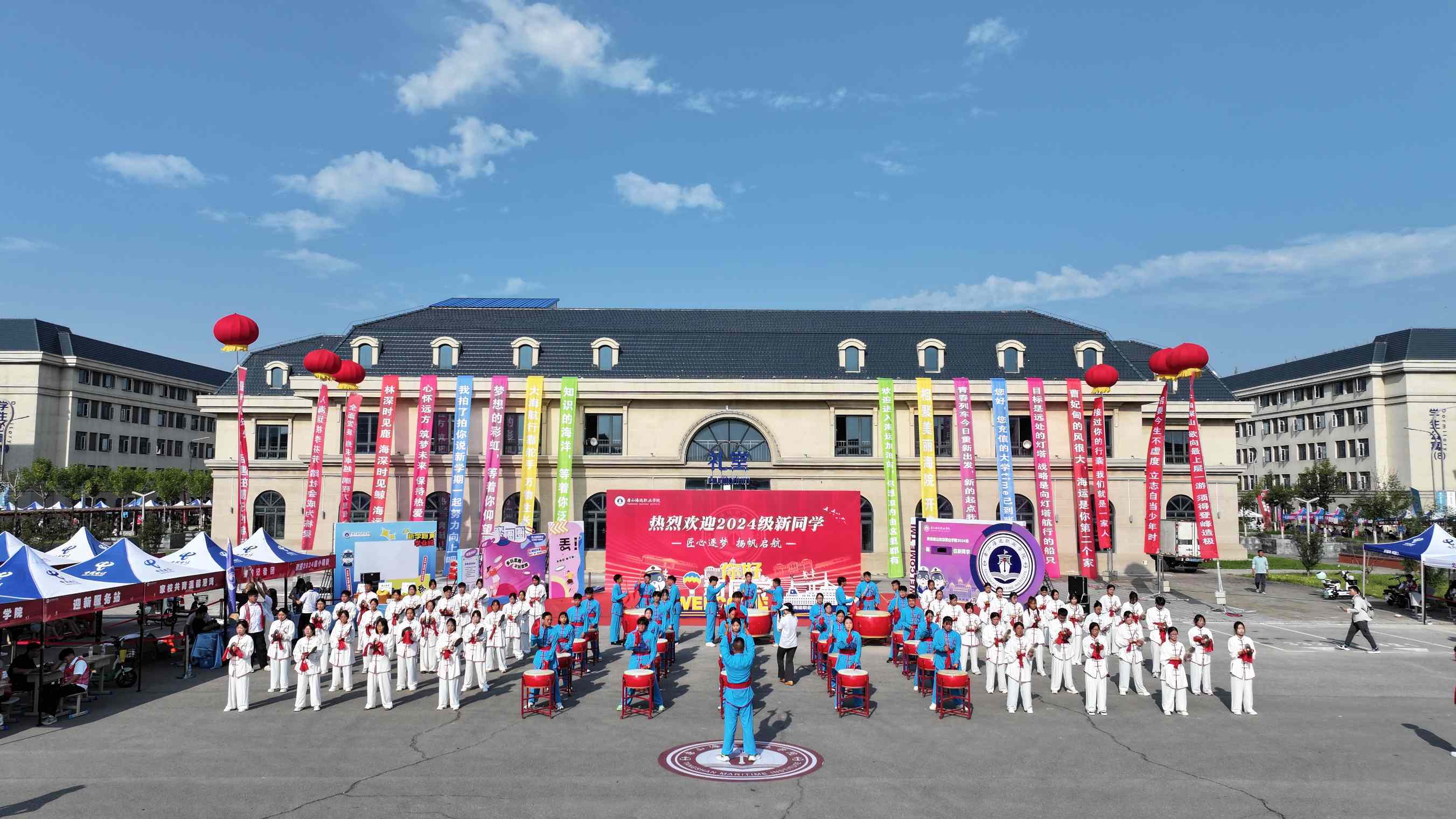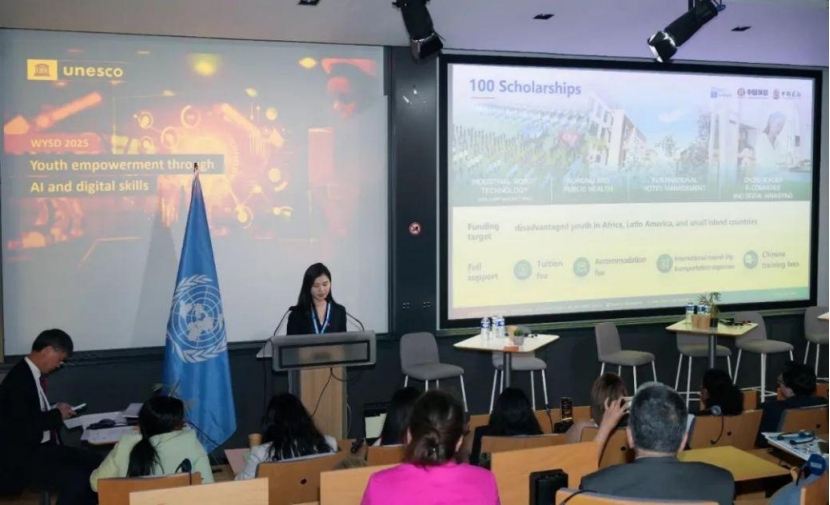Friedrich Huebler, Director of the UNESCO International Centre for Technical and Vocational Education and Training (UNEVOC) visited the Beijing Caofeidian International Vocational Education Town for an inspection and exchange visit
Release time:Jan 22,2025
On January 21, Friedrich Huebler, Director of the UNESCO International Centre for Technical and Vocational Education and Training (UNEVOC), and his delegation visited the Beijing Caofeidian International Vocational Education Town for an inspection and exchange visit. They were accompanied by Yang Zhilin, Executive President of China POCY Group; Sun Aiping, Executive Vice President; Ding Guosheng, Vice President; Liu Baoxiang, President of the Education Research Institute; Li Junsong, Chairman of Tangshan Maritime Institute; Liu Qiang, Assistant to the President; Li Hongtao, Assistant to the Chairman of Caofeidian College of Technology; and relevant staff from the international cooperation departments of both colleges. The two sides exchanged views on strengthening cooperation in international technical and vocational education and training, and jointly explored future directions for the development of international vocational education. The meeting was chaired by Vice President Ding Guosheng of China POCY Group.
During the visit tour, Friedrich Huebler and his delegation visited the training bases of various China Craftsman Valley institutions, including the Aerospace Training Base, the Beijing Arts and Crafts Advanced Technical School (Caofeidian Training Base), the Huibo Robotics Training Base, the Nursing and Health Training Center, and the “One Village, One Product” Industry Academy. They experienced first-hand the use of advanced international training equipment and specialized teaching models, gaining an in-depth understanding of the overall teaching capacity and achievements of the China Craftsman Valley institutions.
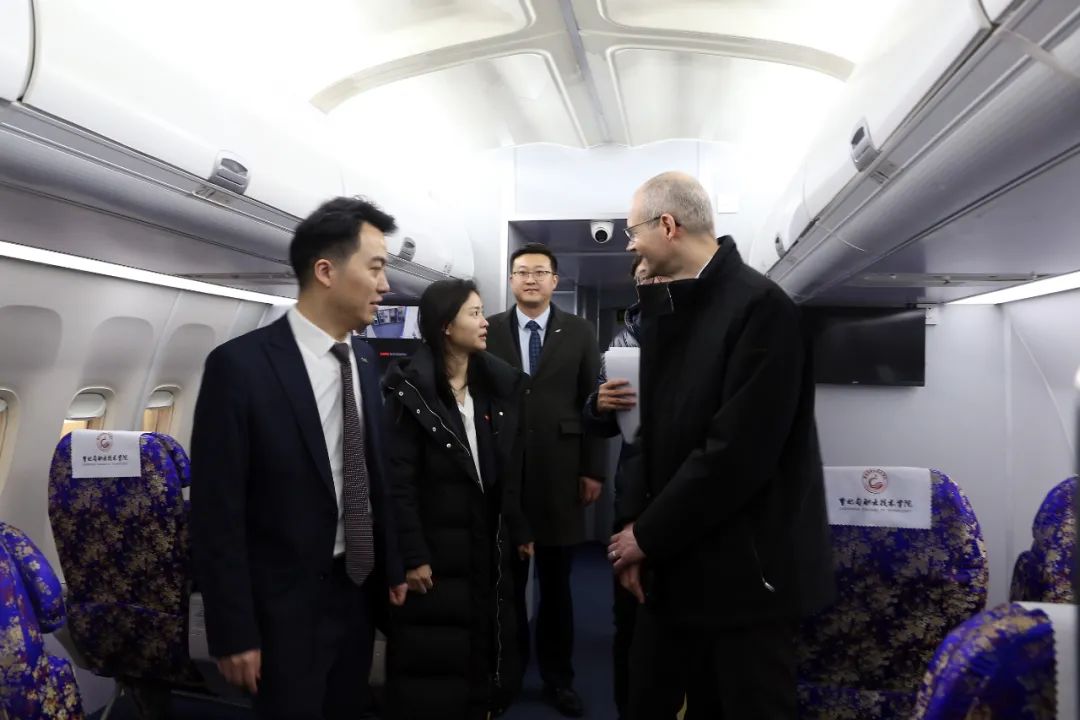
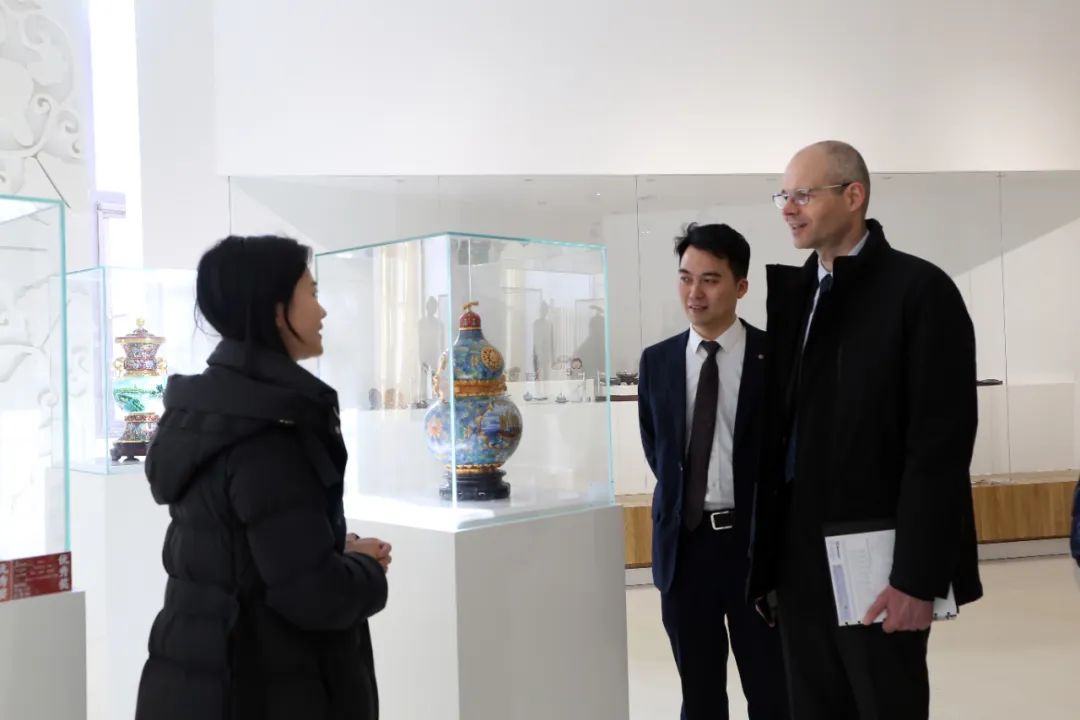
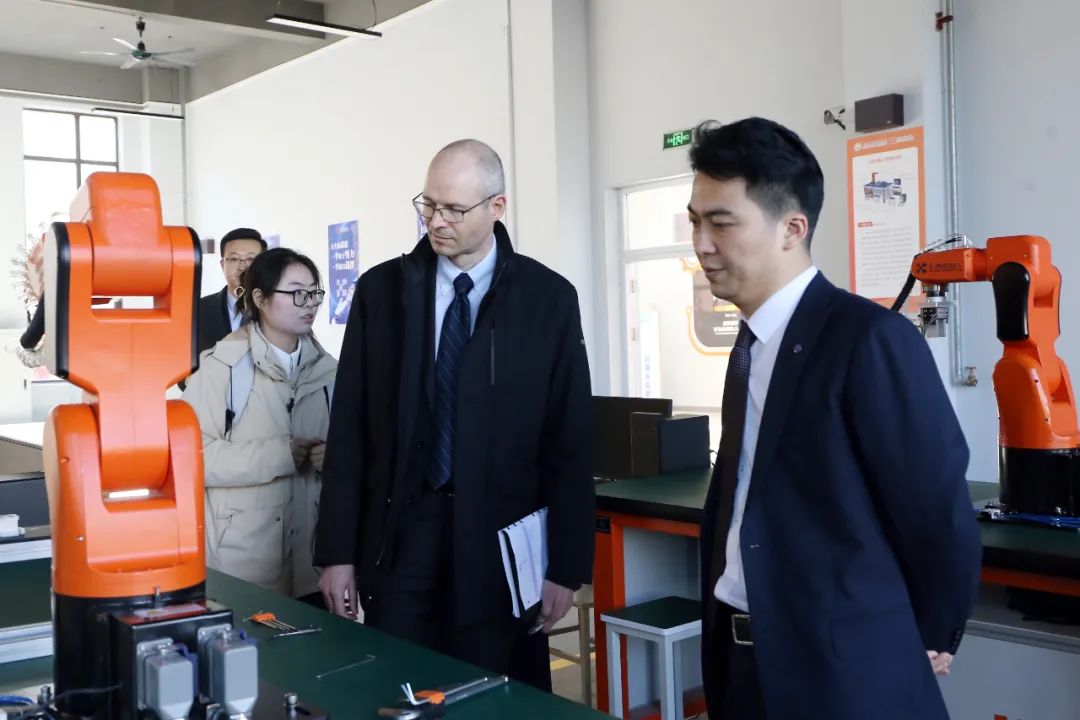
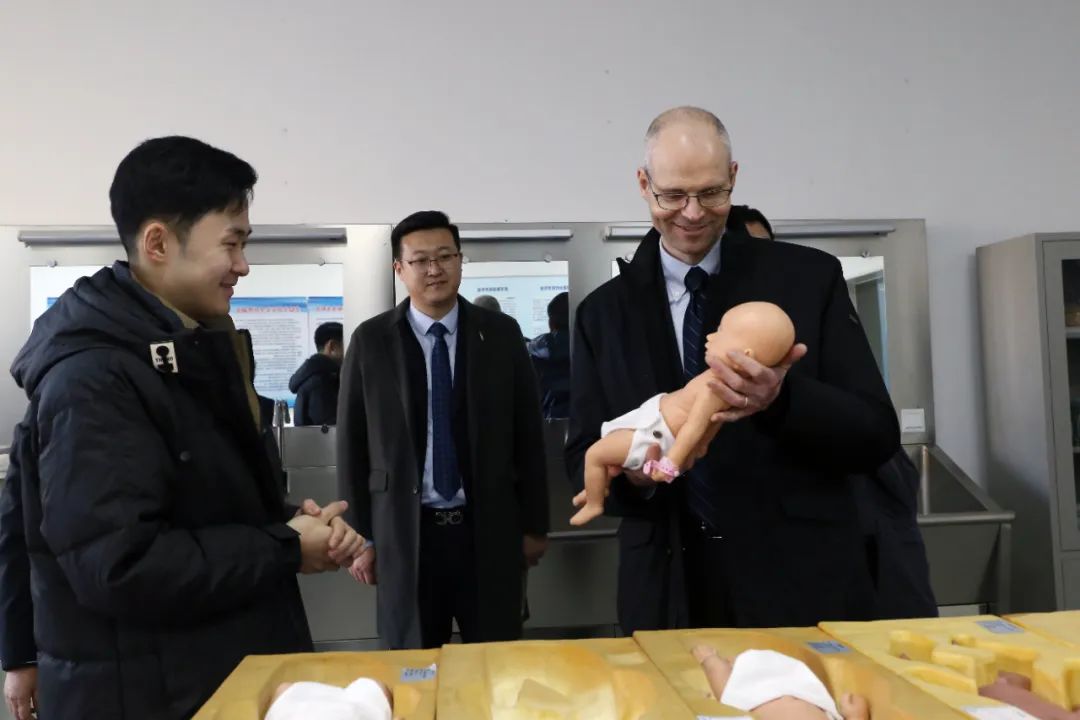
At the meeting, Yang Zhilin warmly welcomed Friedrich Huebler’s visit and introduced the development, operational model, and achievements of China POCY Group’s key projects. He emphasized that China Craftsman Valley has long been committed to an international development strategy, establishing partnerships with many universities and institutions worldwide. He expressed hope that, on the basis of the previously signed Memorandum of Understanding, the two sides would further strengthen exchanges, accelerate the introduction of high-quality international resources, deepen cooperation in vocational education, jointly explore more education models that meet the needs of the times, and provide global youth with more high-quality educational resources and development opportunities. The goal, he noted, is to cultivate high-caliber technical talents with an international vision and contribute to the development of global vocational education.
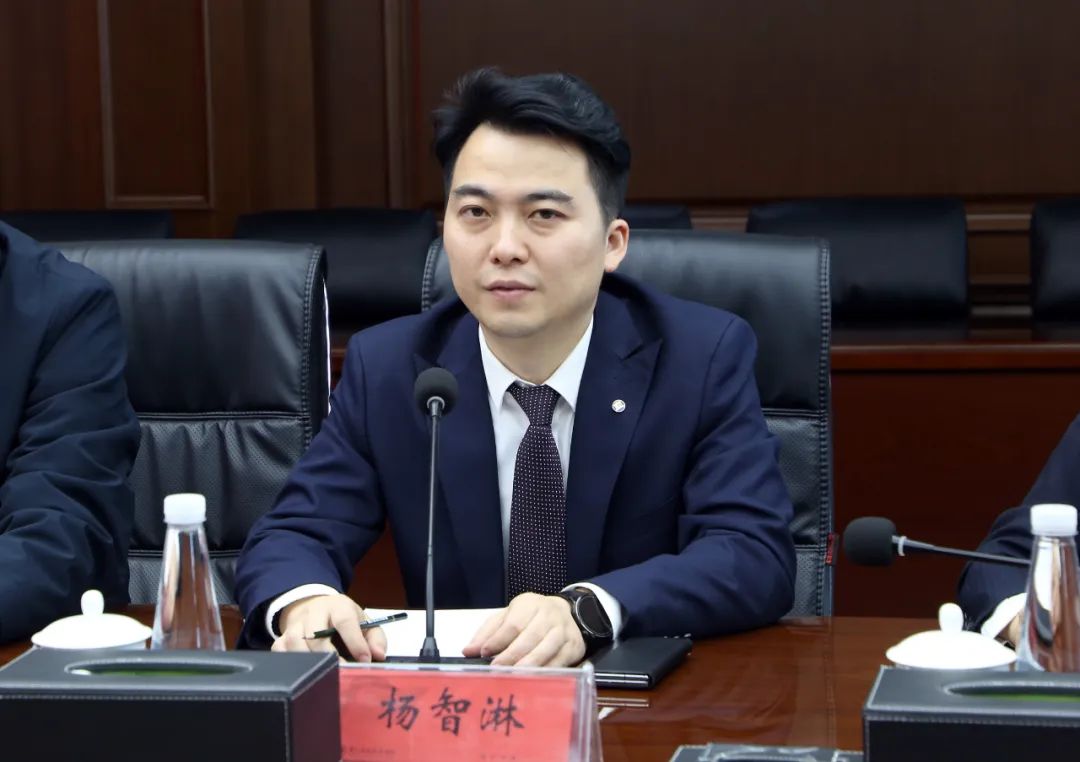
Sun Aiping recalled the 2024 visit of the China Craftsman Valley delegation to Germany, during which a cooperation MoU was signed with Friedrich Huebler at UNESCO-UNEVOC headquarters. She expressed the hope that through deeper cooperation, the two sides could integrate their strengths, actively promote the efficient implementation of TVET projects, and work toward making Craftsman Valley institutions an important liaison center for UNESCO-UNEVOC in China—serving as a bridge between China and the world in vocational education. This, she added, would create new pathways for youth career development and skills enhancement, improve youth employability worldwide, and help build a new global youth employment ecosystem.
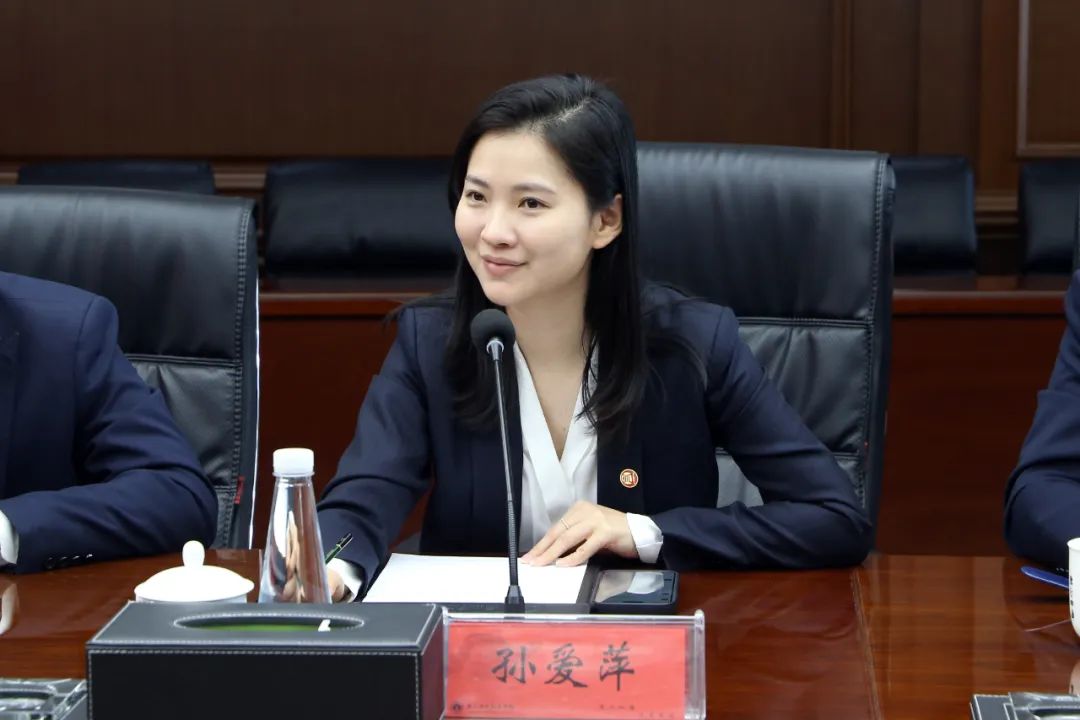
Friedrich Huebler expressed his sincere gratitude for the warm reception. He noted that China holds significant influence in the field of education and that its development models in innovation offer many valuable experiences for other countries. The innovative practices of China Craftsman Valley in vocational education, he said, are of great reference value for the development of global vocational education. He expressed hope for further strengthening international education cooperation and exchange, bringing in more internationalized curricula and outstanding faculty, and promoting mutual learning to jointly advance the design of innovative management programs, improve the quality of education on both sides, and achieve deeper integration and innovation between educational concepts and practices.
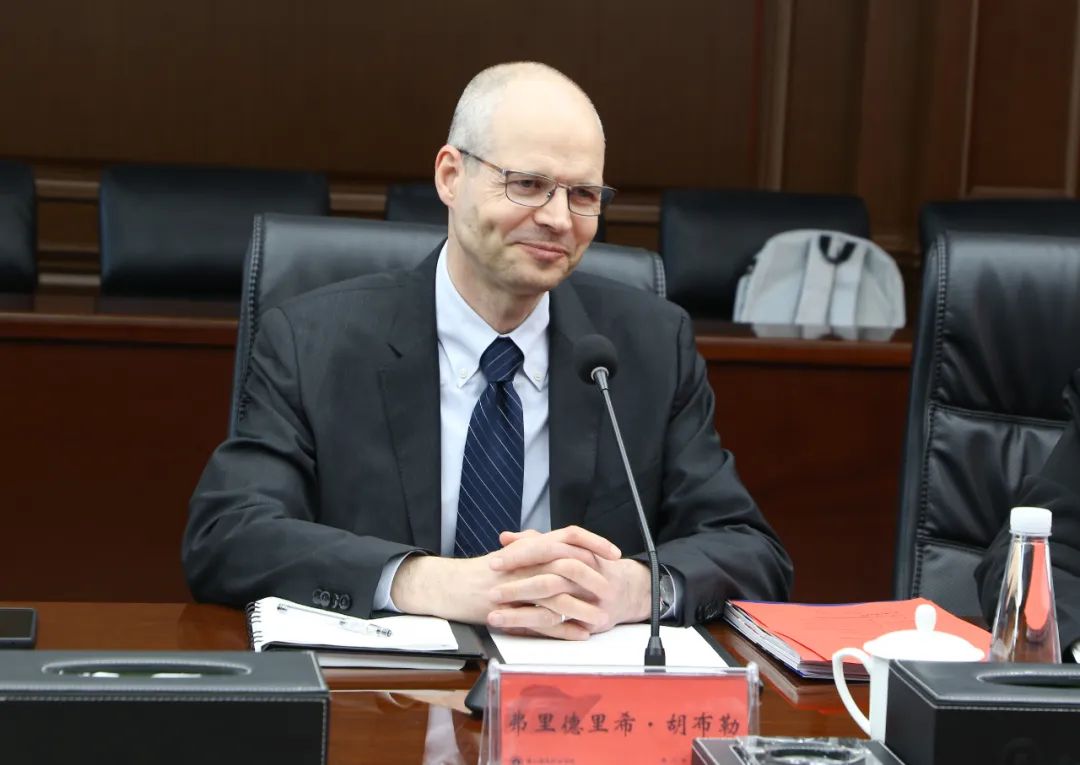
During the meeting, the two sides exchanged ideas on jointly advancing international vocational education cooperation and promoting the implementation of joint educational projects. They reached a consensus on linking the international education industry, and on cooperation in technical exchange, talent cultivation, joint discipline development, and faculty training. Both sides will fully leverage their respective strengths in the education sector to maintain friendly cooperation, map out a blueprint for vocational education internationalization, and explore replicable and scalable models and experiences for international cooperation and collaborative innovation in vocational education.
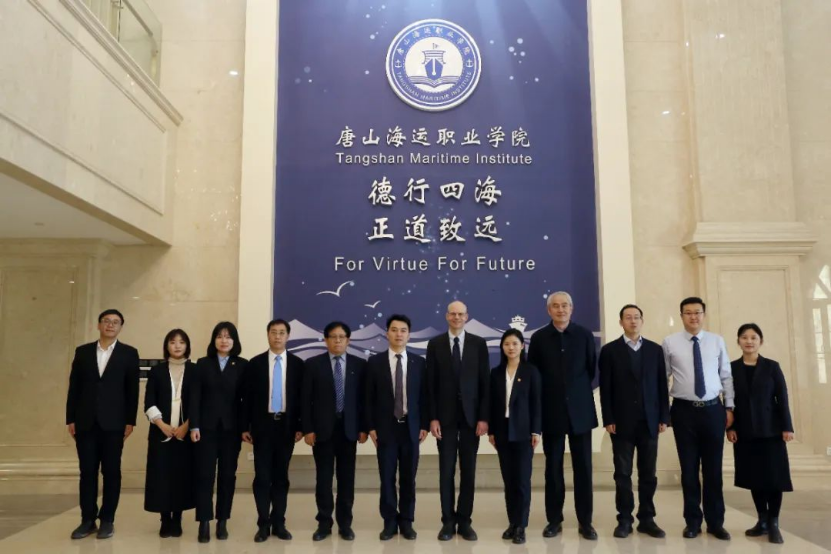
After the meeting, Friedrich Huebler and his delegation visited POCY Group’s Beijing headquarters. In the Digital Corridor, they learned in detail about the Group’s extensive experience over the years in vocational education operations, talent cultivation, and related projects—including Guizhou Qingzhen Vocational Education City, Beijing Caofeidian International Vocational Education City, and Chengdu International Vocational Education City—as well as its achievements in Sino-foreign joint education, integration of school-enterprise resources, and innovative development of industry-education integration.
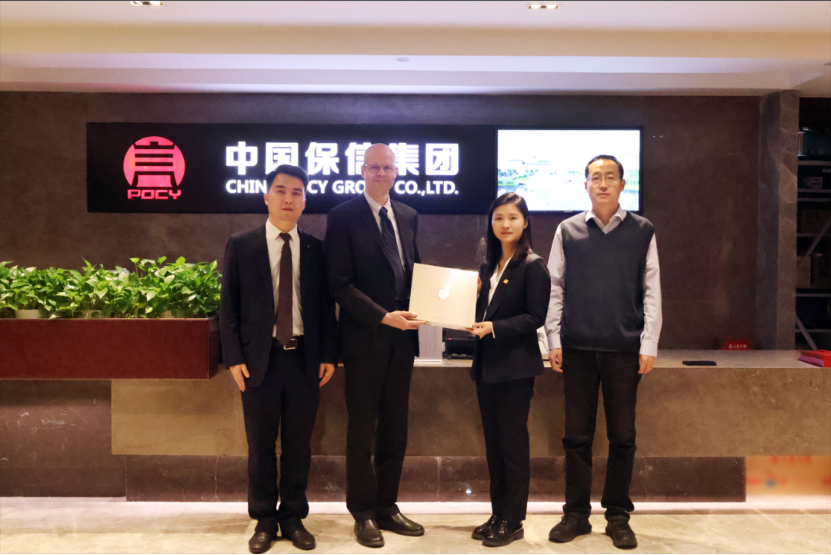
This inspection and exchange activity built a vital bridge for connecting Craftsman Valley institutions with the international vocational education system, laying a solid foundation for cultivating high-quality technical talents in line with international standards. It also established a long-term cooperation platform for the two sides, enabling sustained exchanges of educational concepts and resources, exploring diversified industry-education integration models, offering multi-level, multi-field, and multi-format skills training, and providing high-quality, dignified, and decent employment training—ultimately cultivating more internationally competitive professionals with a global vision.

